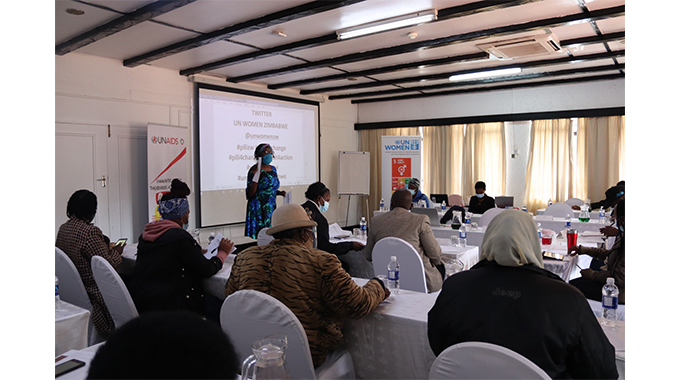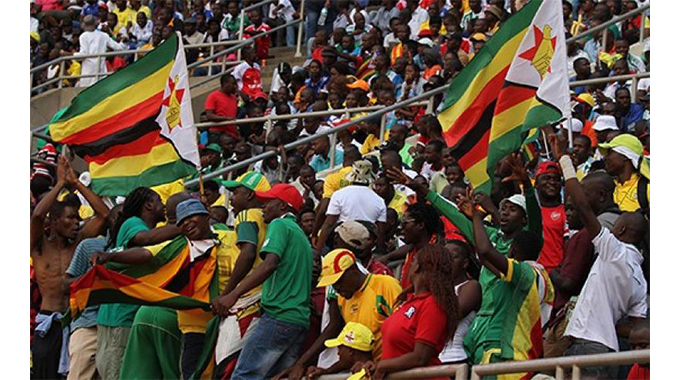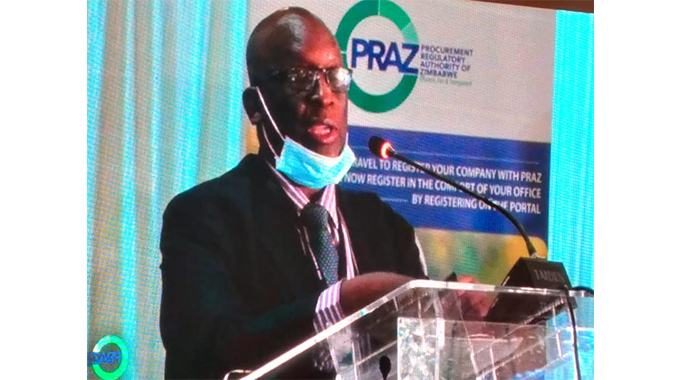UN launches Pili tool kit in Bulawayo

Bongani Ndlovu, Chronicle Reporter
THE United Nations on Wednesday launched the Pili Tool Kit in Bulawayo to raise awareness about the challenges faced by women living with HIV and Aids.
The launch was a partnership between The United Nations Entity for Gender Equality and Empowerment of Women, UN Women and UNAIDS who are facilitating the roll out of “Making the HIV response work for women through film: A toolkit for action” popularly known as the PILI Toolkit for Action.
The toolkit will be used by policy and decision makers on gender equality and HIV. The toolkit can also be used by community-based practitioners with decision-making power, such as, faith-based and traditional leaders.
The launch was held at a local hotel, where different members of the civic society, religious leaders and traditional leaders were trained in using the tool kit.
This is a global toolkit for action on gendered response to HIV/AIDS and uses a feature film ‘PILI’ about a woman living with HIV making difficult choices, fighting against stigma, and building her agency.
During the training, there was a screening of the film which is initially targeting Harare, Bulawayo, Midlands, Manicaland, Mashonaland West and Masvingo.
The Pili Toolkit for Action aims to support national efforts in identifying existing gaps in the HIV response, key issues women living with and affected by HIV face and actions that are required to address these challenges.
Facilitating the training was National Aids Council (NAC) board member representing persons living with HIV, Mrs Tendayi Westerhof.
She said the workshop was part of ways to remind people that HIV and Aids is a pandemic that affects women the most.
Mrs Westerhof said the film will be taken to the grassroots so that it may influence policy on women living with HIV in Zimbabwe.
“We are saying let us take the film and turn it into an advocacy tool to change policy that can improve access and economic access for women living with HIV.
“So, the people that we have here we are training the trainers who in turn are going to cascade this information to their respective communities at grassroots level. To ensure that we take the movie, to all communities because she identifies with a lot of vulnerable women who are in difficult circumstances, women who walk long distances to seek health services to access ART, women who are not economically empowered and issues of patriarchy gender inequality.
“We are talking about the problems that women living with HIV and Aids face and we are trying to find solutions to say the policies that are there to cater for people living with HIV and Aids, do they adequately address issues for women living with HIV. We were highlighting the challenges from the movie that relate with women living with HIV and also the opportunities that are there for them to participate and access all health services including HIV treatment.
“So, we are also trying to address the barriers that are there that prevent women living with HIV from accessing treatment and linking them to the policies that we have in the country,” said Mrs Westerhof.
On the national rollout of the toolkit, which was developed from the Movie PILI, Delphine Serumaga, UN Women Country Representative said: “PILI toolkit rollout is meant to train facilitators across the country on how to use the film as a vehicle for generating discussion and propose solutions around HIV related issues affecting women in communities.
“There is need to link HIV related issues affecting women to broader processes of change for gender equality and improving the HIV response.’ She went on to say, ‘Evoking sustainable accountability towards women living with HIV is important in making a worthwhile impact in improving the well-being and support to positive women”.
Objectives of the Trainings include to validate personal experiences and identify areas of improvement in the HIV/AIDS response especially related to gender equality and access to opportunities and service delivery for women living with HIV, strengthen policies and messaging in the HIV/AIDS response and encourage social understanding and activism for equal opportunities and service delivery for WLWHIV and develop critical thinking and open mind-ness about HIV.
Pili is a drama that arose from what was originally a documentary project, and the movie from Tanzania, uses mostly non-professionals, many in just the same situation as their characters.
Bello Rashid plays Pili Hussein, a young woman tilling the fields for an exploitative low wage, and secretly taking meds to manage the HIV condition she has told nobody about, not since her husband deserted her because of it. Now she brings up two small children on her own,
Produced by Sophie Harman and directed by Leanne Welham, the movie draws you into Pili’s daily struggles to gather money to become her own boss.
The movie premiered in September 2017 and then played in Geneva, Switzerland, as part of the World AIDS Day celebrations on 1 December. It won two awards at the Dinard British Film Festival and was part of the official selection at the Pan African Film and Arts Festival. The movie will be screened in British cinemas in the first half of 2018, with all the proceeds being given to the Miono community.
@bonganinkunzi











Comments